Tiffin Box
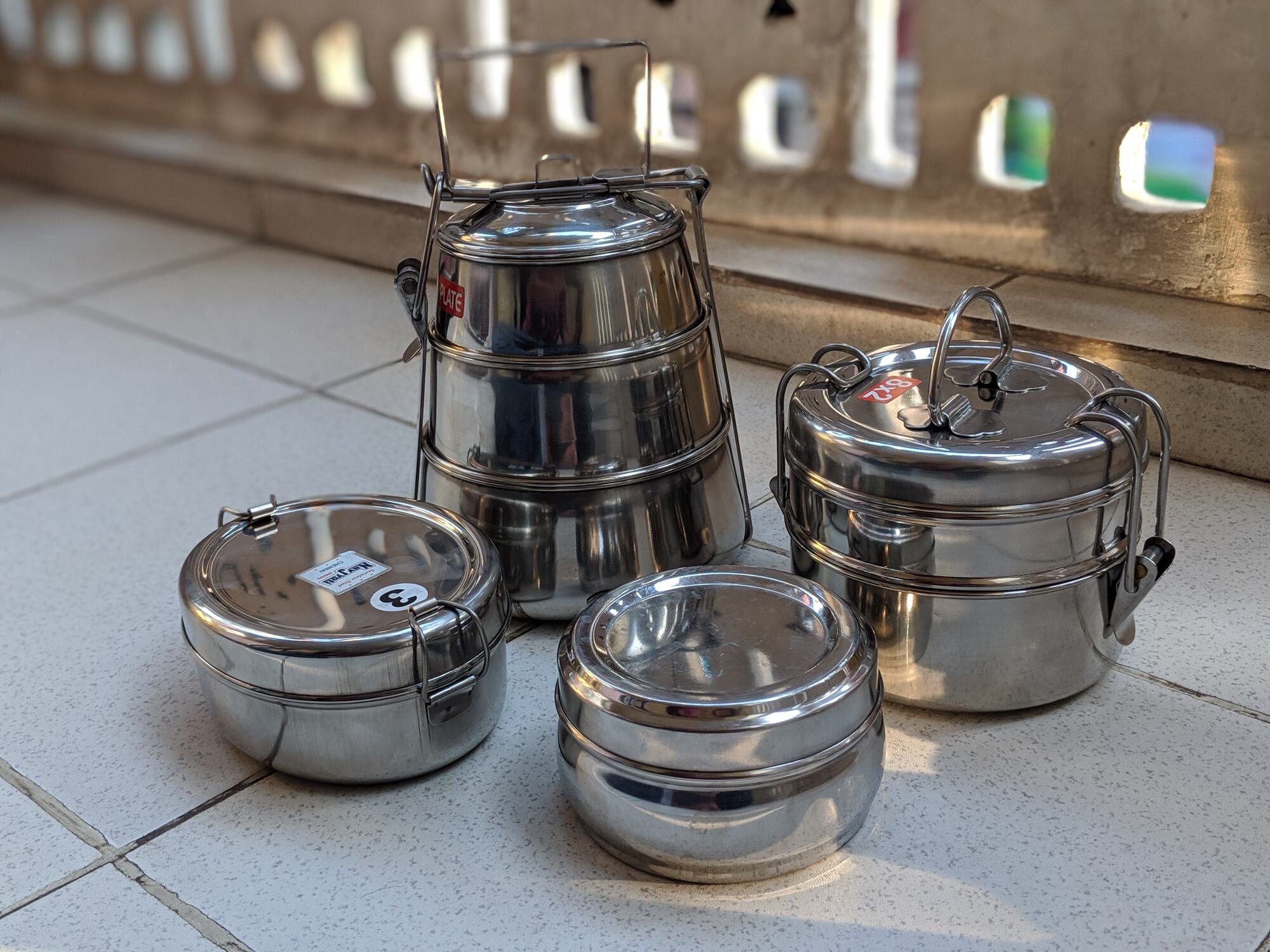
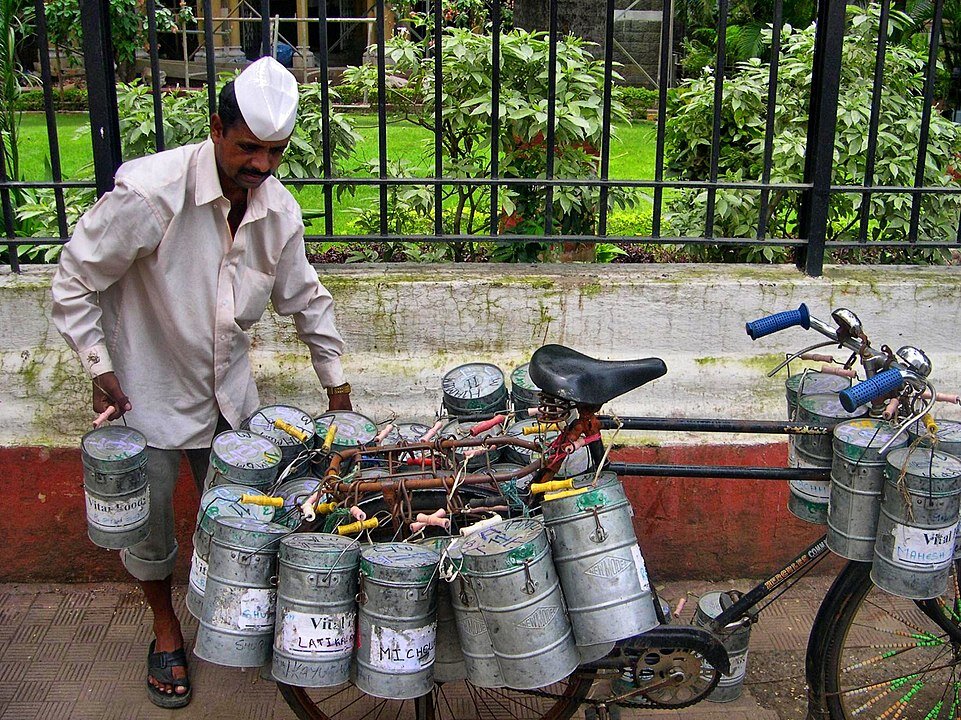
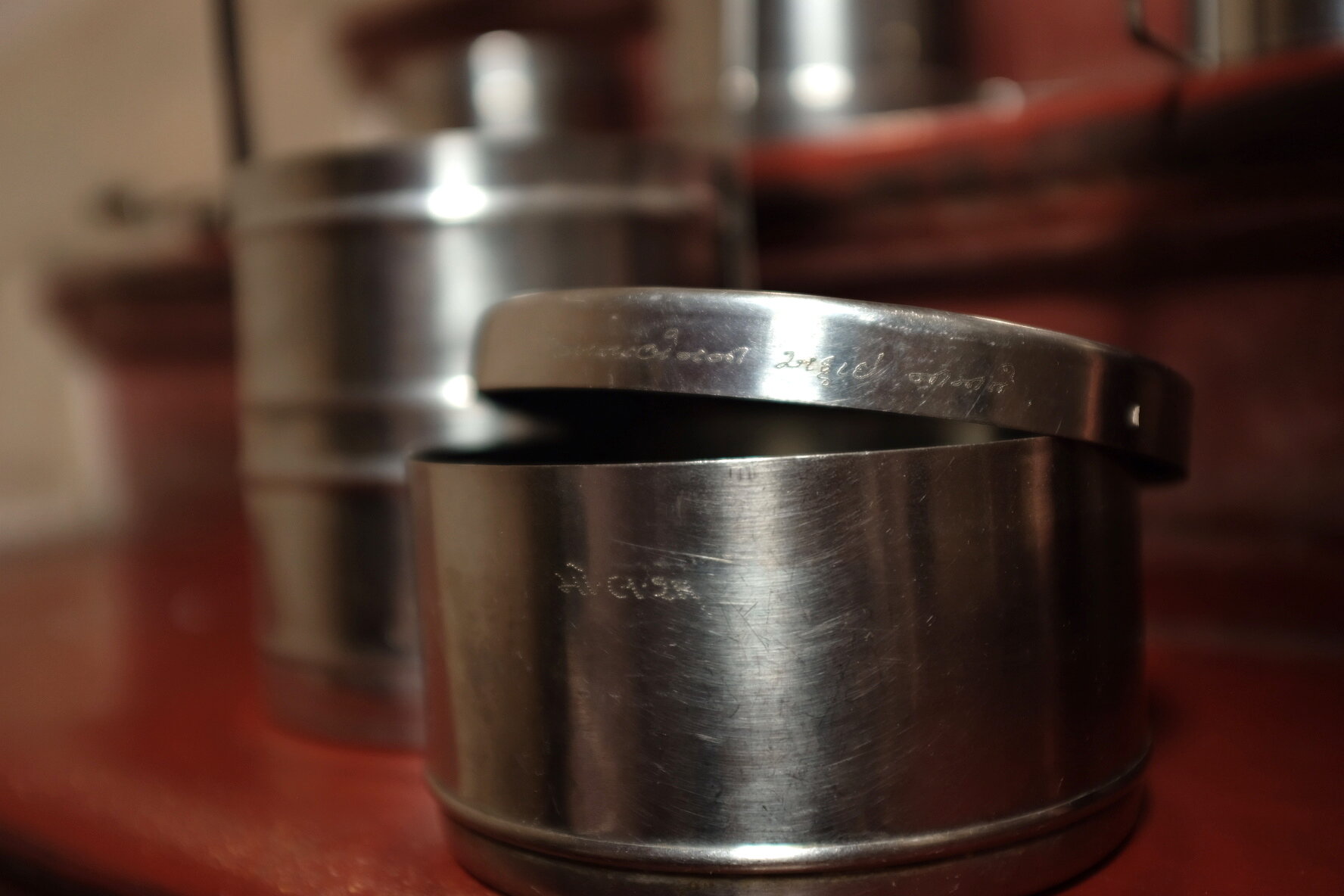
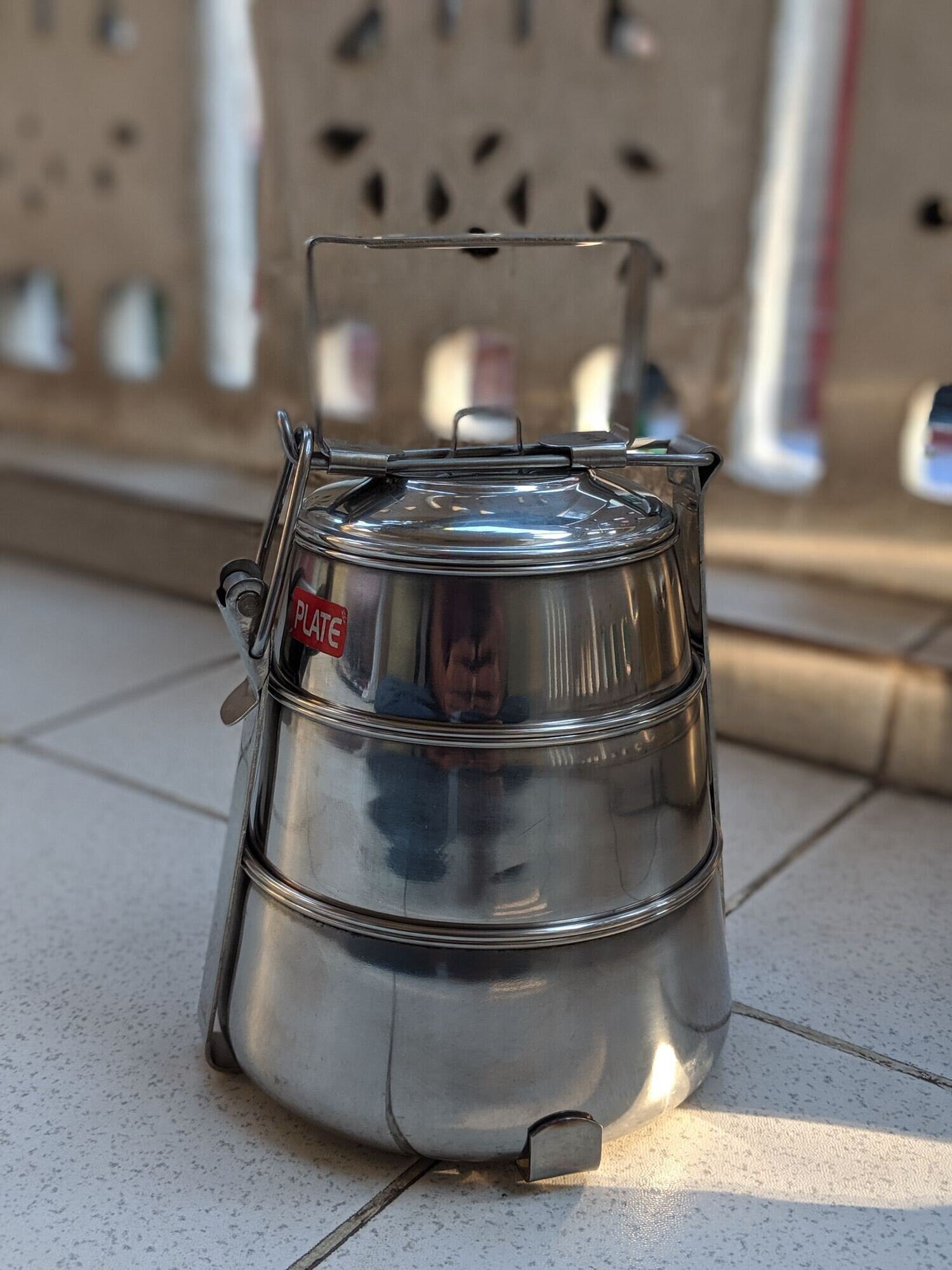
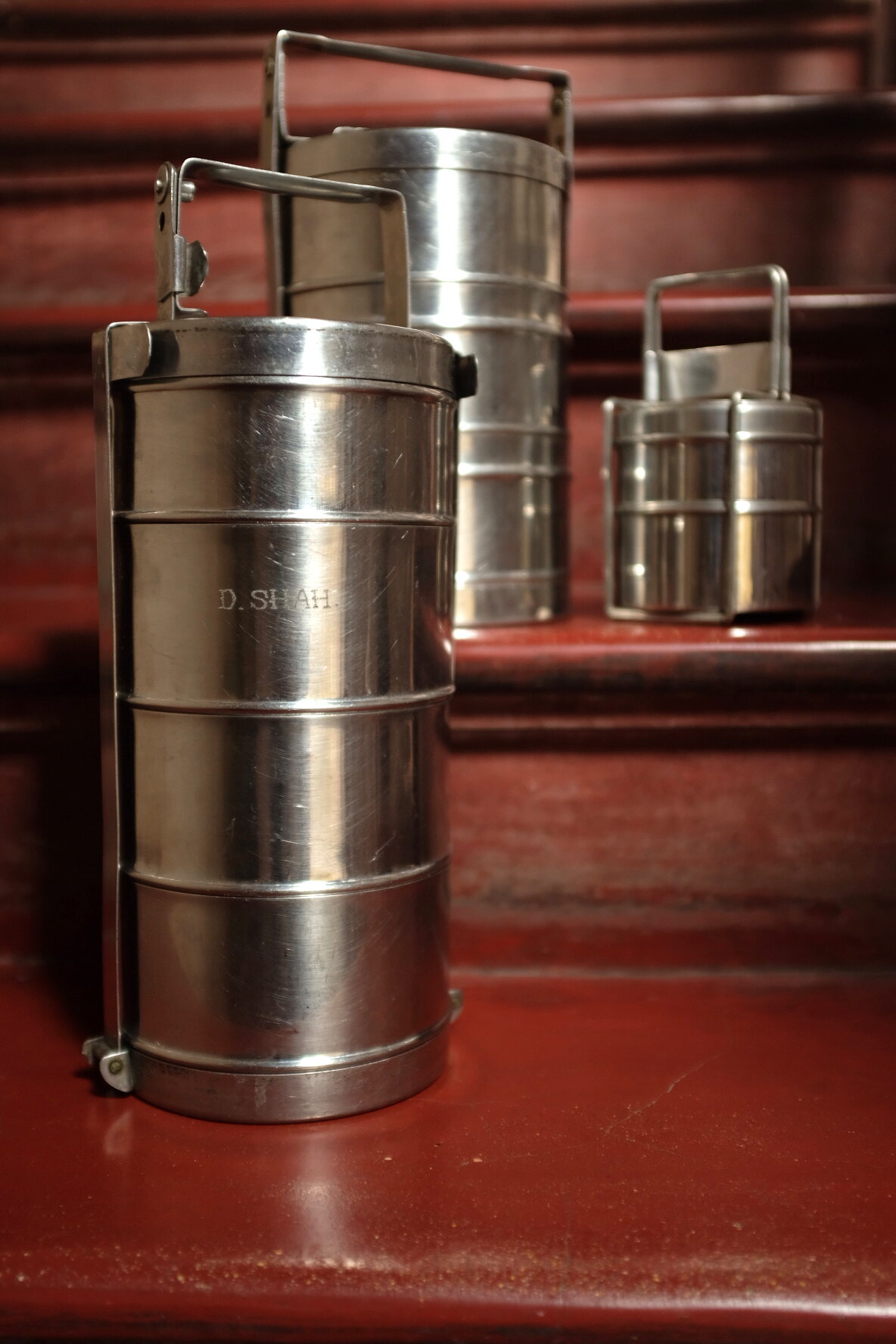
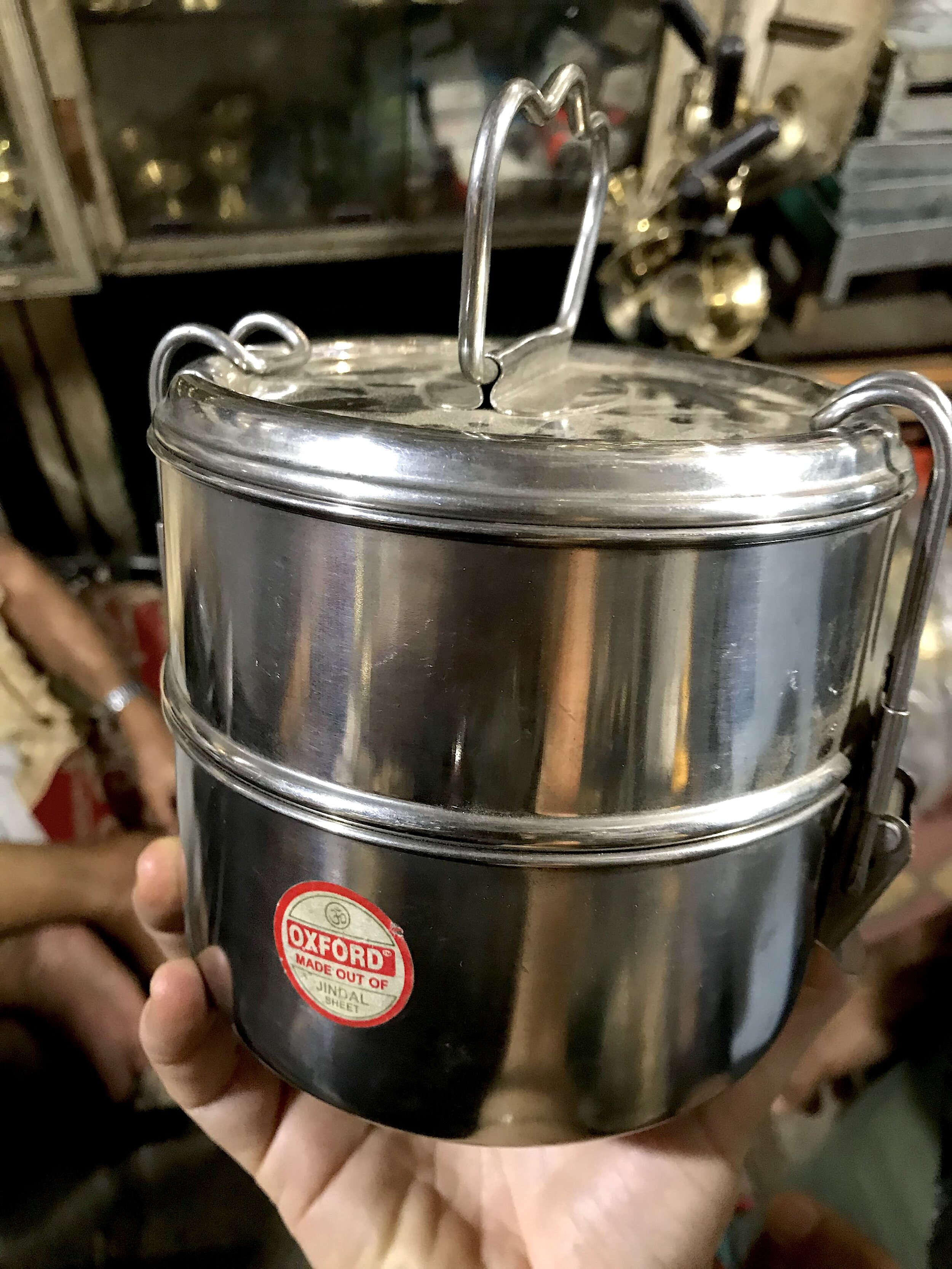
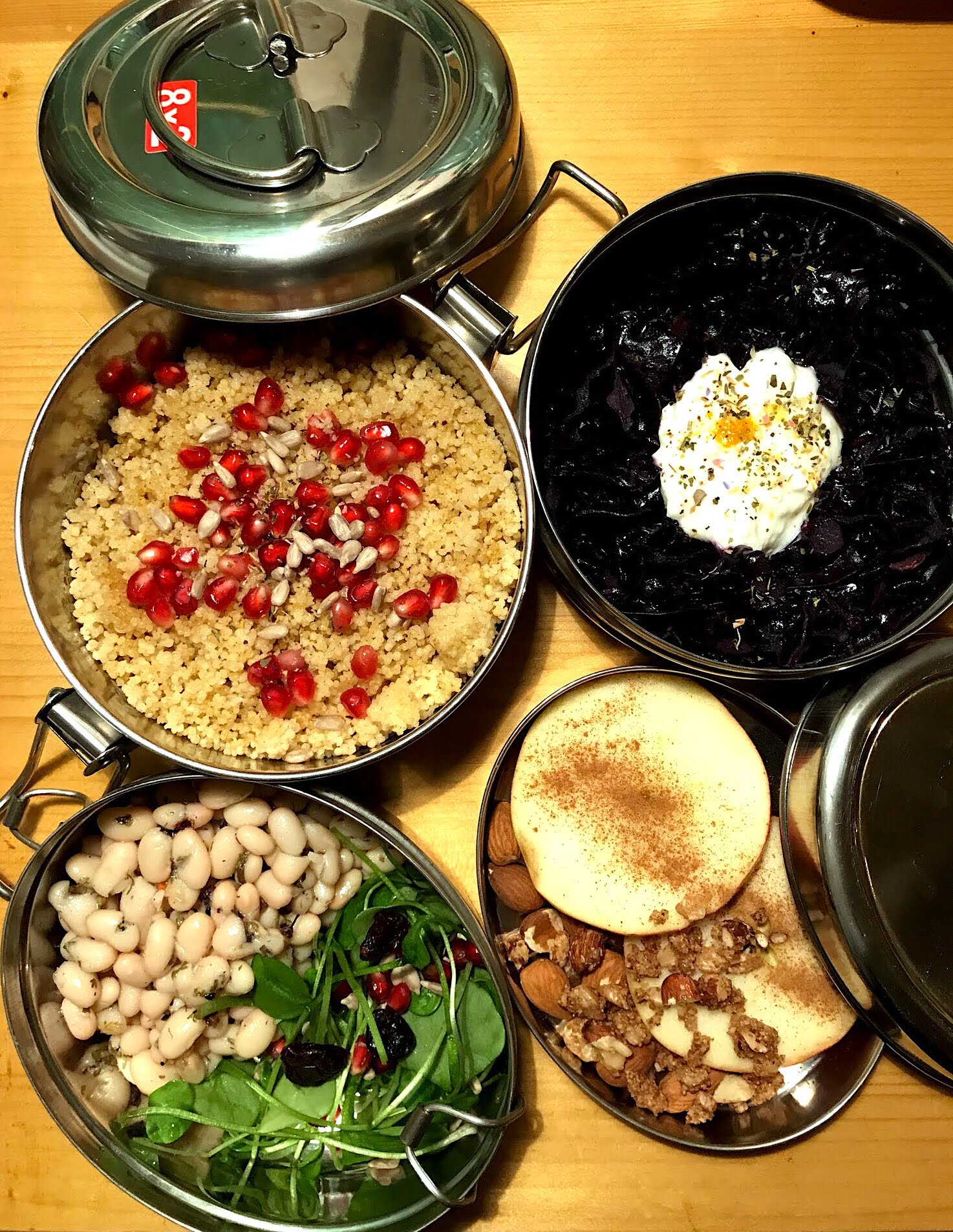
Tiffin carriers, so-called dabbas, have a long tradition in India. Originally used as durable lunch boxes for workers, the ubiquitous containers made from stainless steel or aluminium come in a variety of shapes and sizes with stacked compartments to hold as many dishes as the heart (and belly) desires.
In the late 19th century, the first delivery service was invented in Mumbai which distributed home-cooked meals packed in tiffin boxes to workers across the city. Today, the iconic dabbawalas of Mumbai deliver over 200.000 lunches daily in a complex and surprisingly efficient system.
Adaptable to modern tastes, the sustainable version of take-away or lunch boxes have made their way all across Asia and are widely used in other countries as well. Modern versions are sometimes made from enamel or plastic.
The original tiffin carriers are extremely durable and are often passed on through several generations.
Original name(s) : dabba
Material : stainless steel / aluminium
Usage : packaging / transporting
Cost : low
Traditional Purpose : packaging / transporting
Life-Cycle: re-usable
Durability : high
Shelf-life : unlimited
Status : In-Use
Food Safe : yes
Energy Usage : high
Production Effort : medium / industrial
Region(s) of Origin : India